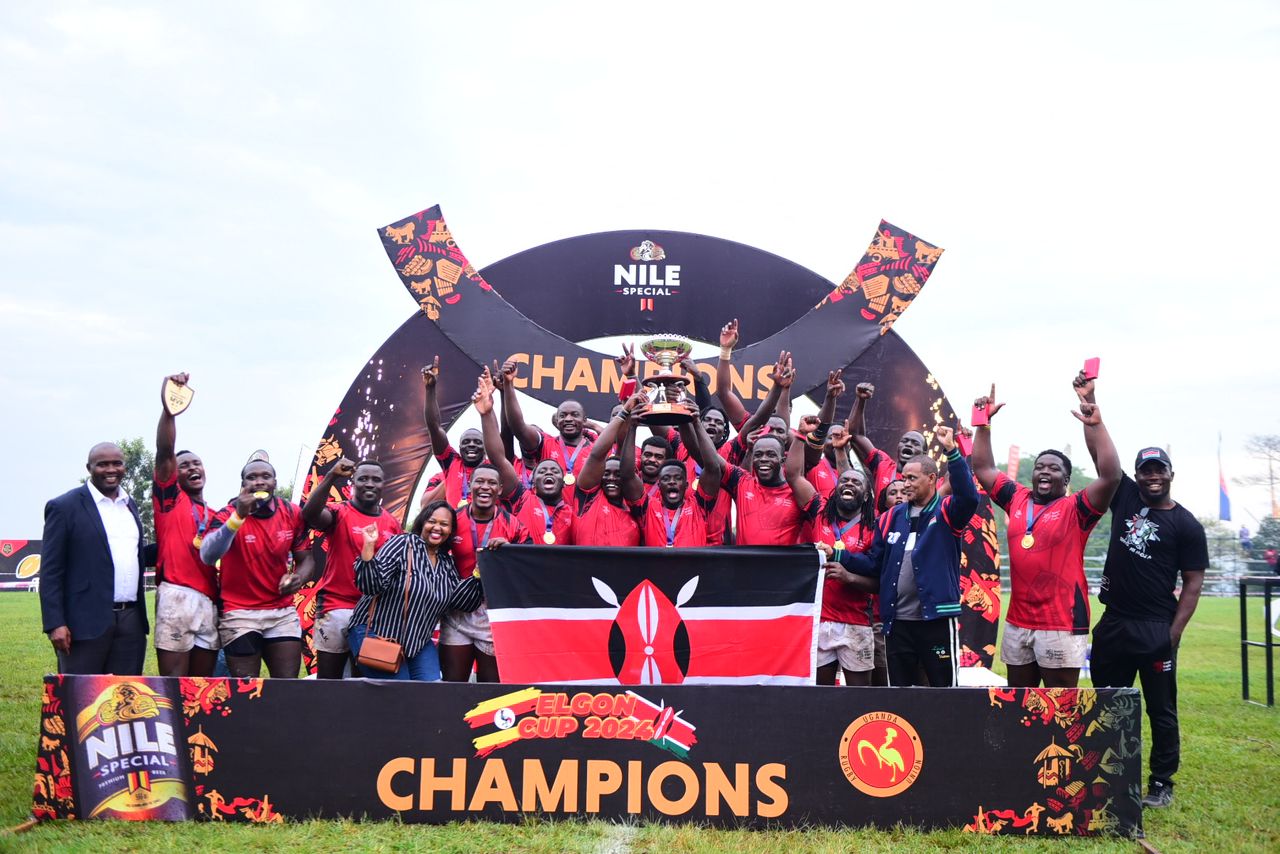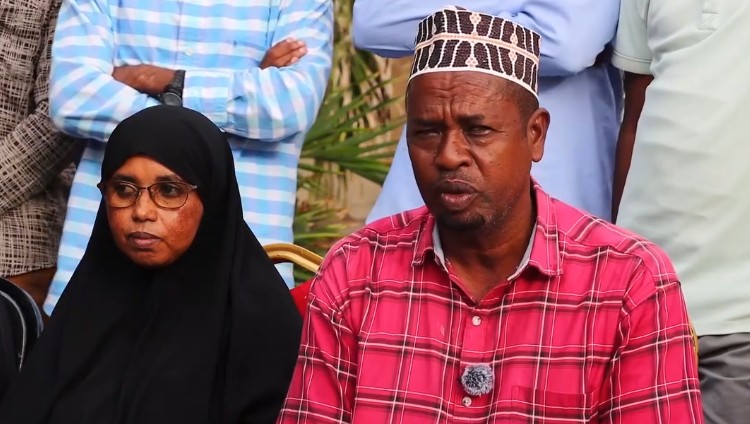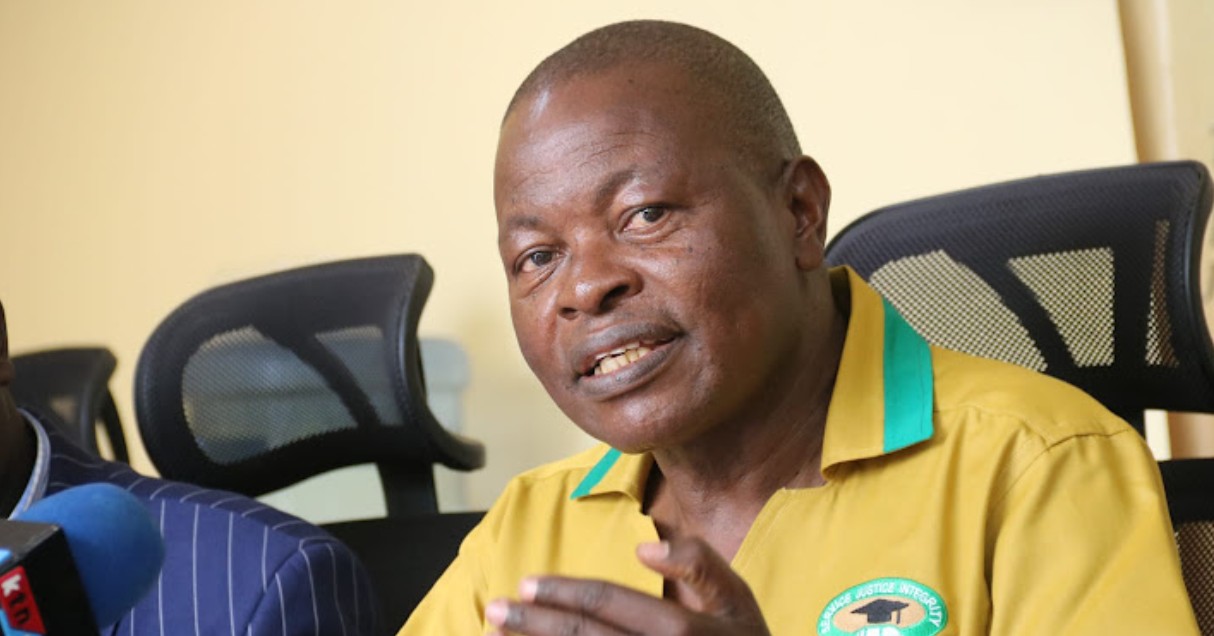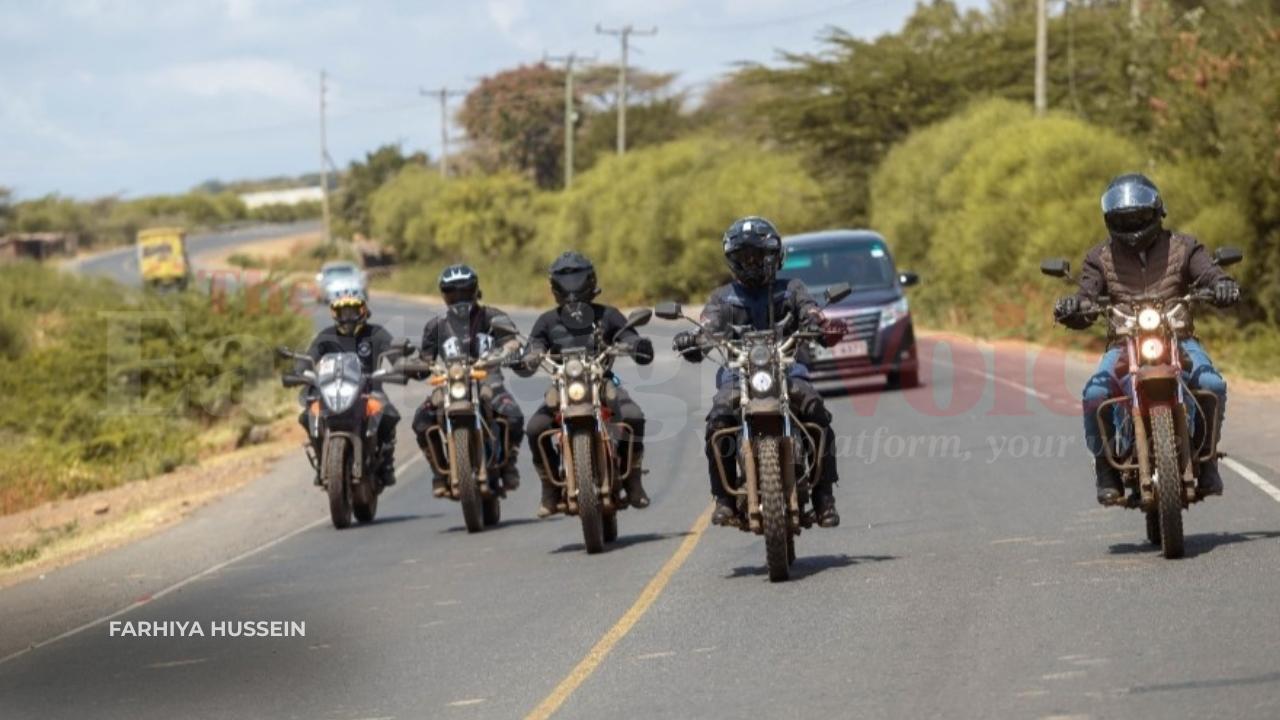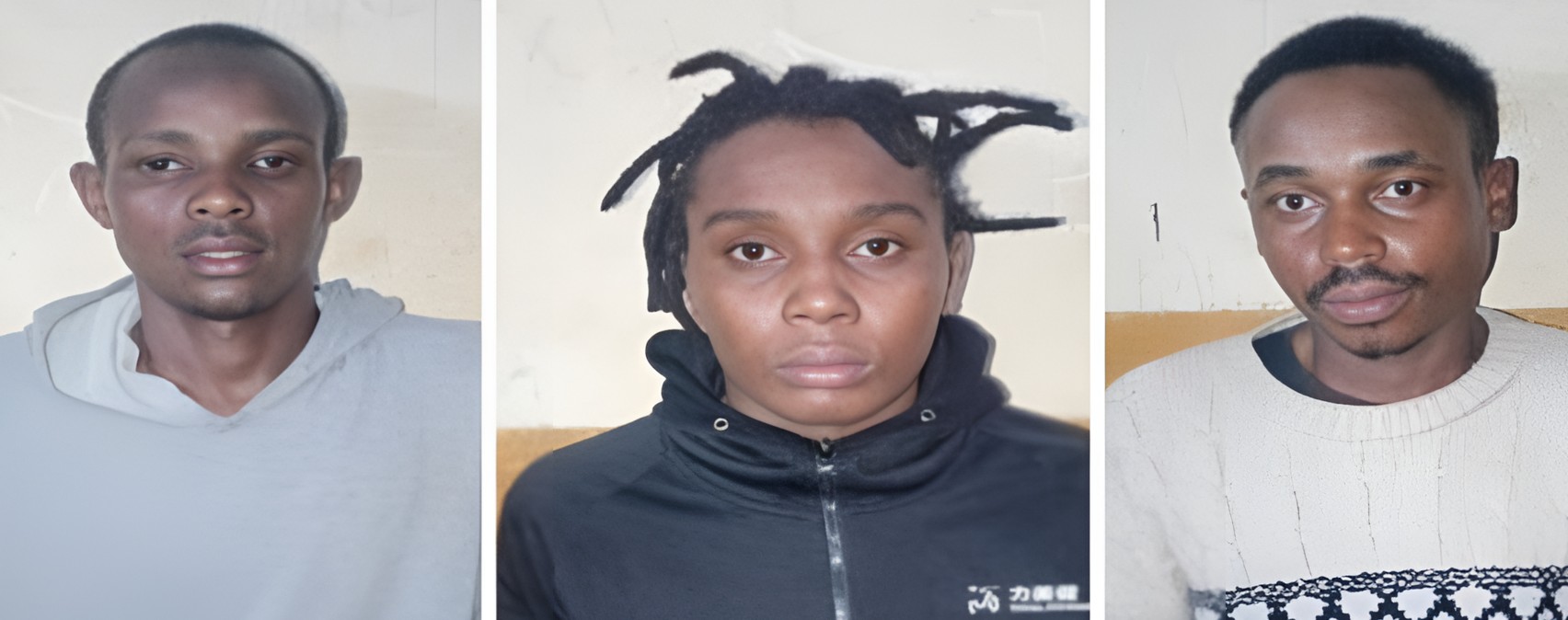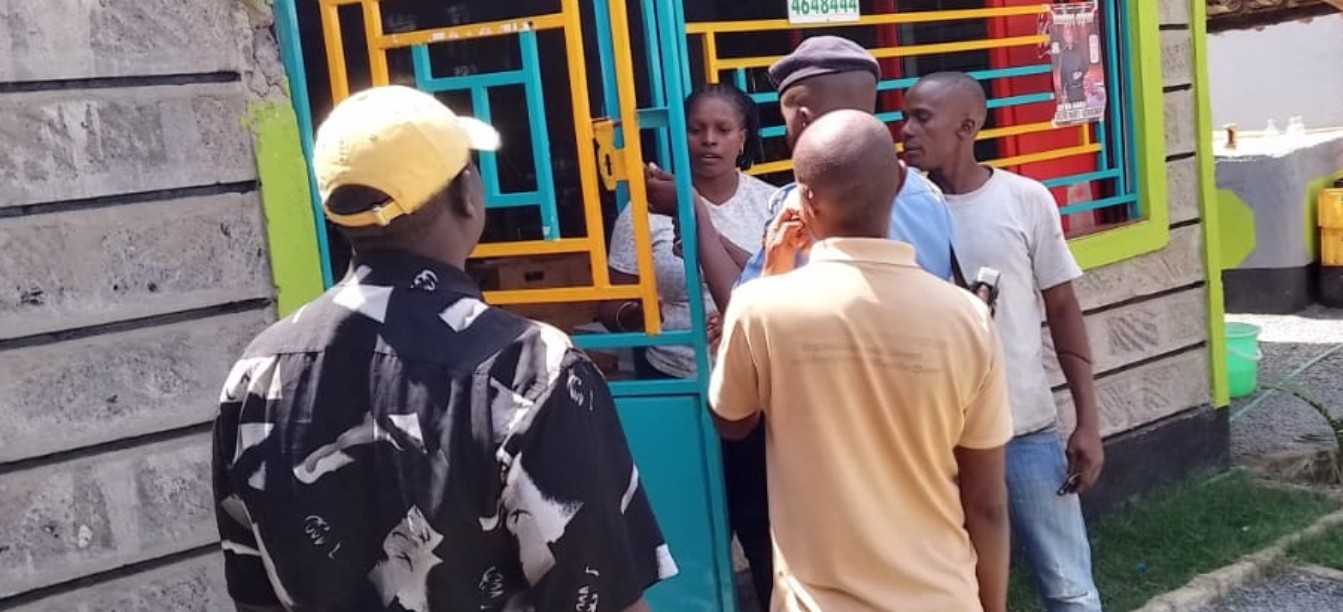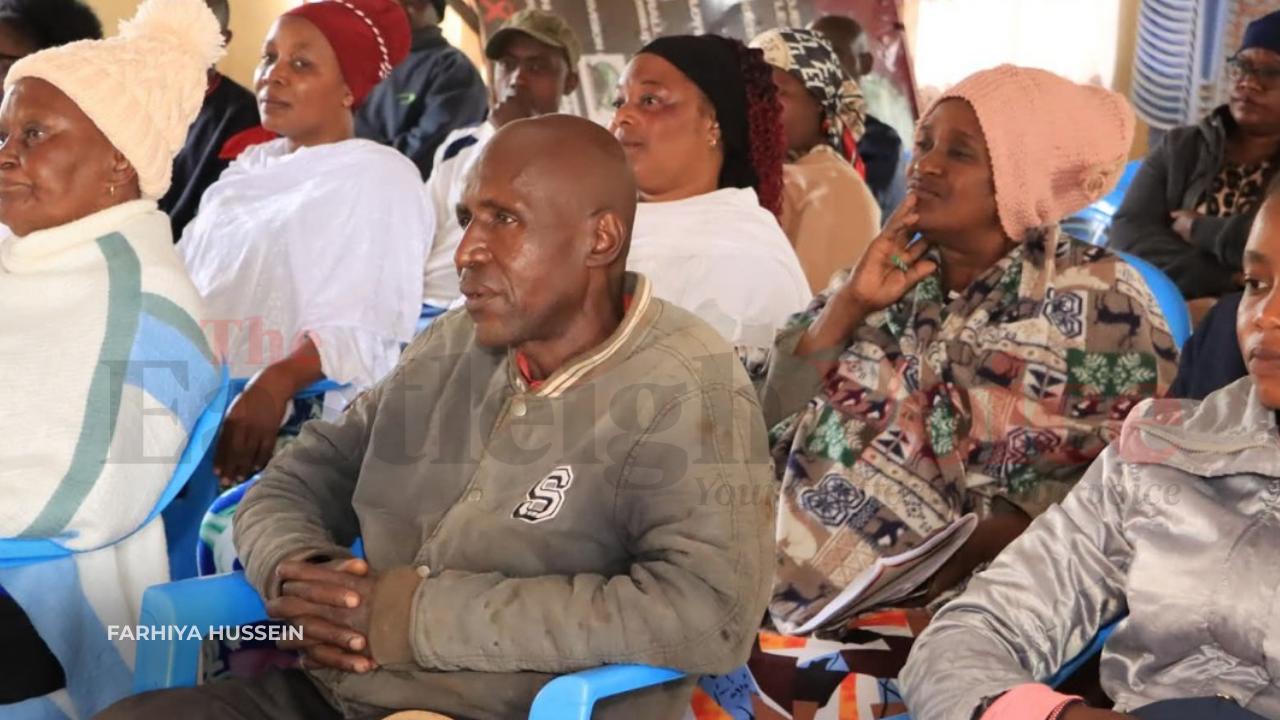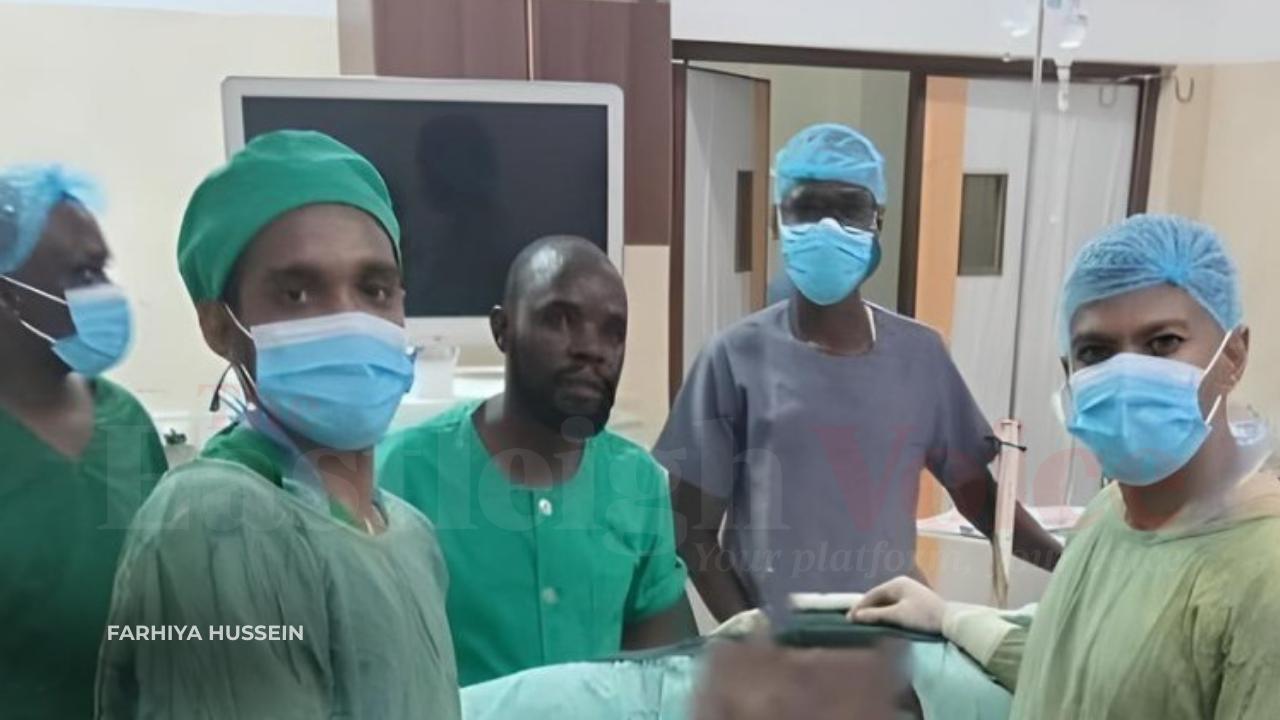How ban on ID vetting has simplified the process for Eastleigh residents

Under the new policy, the government has placed the responsibility of ensuring proper ID issuance on Chiefs, who will personally be held responsible for any document issued to non-Kenyans within their locations.
The ban on vetting for IDs has simplified acquiring the vital document in the Eastleigh area, National Government Officials now claim.
Under the new model, verifying whether an individual is a resident of the locality squarely lies on the area chief making the exercise less time-consuming and cumbersome for persons seeking the vital document.
More To Read
- Mass registration exercise offers relief to Mombasa residents seeking ID issuance
- Muslim community from Mt Kenya decry discrimination in ID acquisition despite Ruto directive
- Revealed: State to use biometrics, family tree for ID vetting in North Eastern
- Kenyans to get national IDs automatically upon turning 18, CS Murkomen says
- North Eastern leaders slam critics of ID vetting ban
- Ex-KDF veteran narrates ordeal with ID vetting committee, welcomes suspension
A spot-check by The Eastleigh Voice showed less crowds of people at the Chiefs camps in the areas around the Kamukunji area, as was the case before when those seeking the document had to go through a rigorous process and at an appointed time to get the document.
"Today, all they do is walk in and fill in a form provided by the Chief, who then verifies whether they reside in the locality and approves the applicant's nationality and endorses them to proceed to the next stage, that is the National Registration Bureau (NRB) for registration," an official who is not allowed to address the media said.
Under the new policy, the government has placed the responsibility of ensuring proper ID issuance on Chiefs, who will personally be held responsible for any document issued to non-Kenyans within their locations.
The move comes in response to a Presidential directive to dismantle the existing multi-agency vetting teams, which have been criticised for corruption and prolonged delays in issuing ID cards to communities residing along national borders.
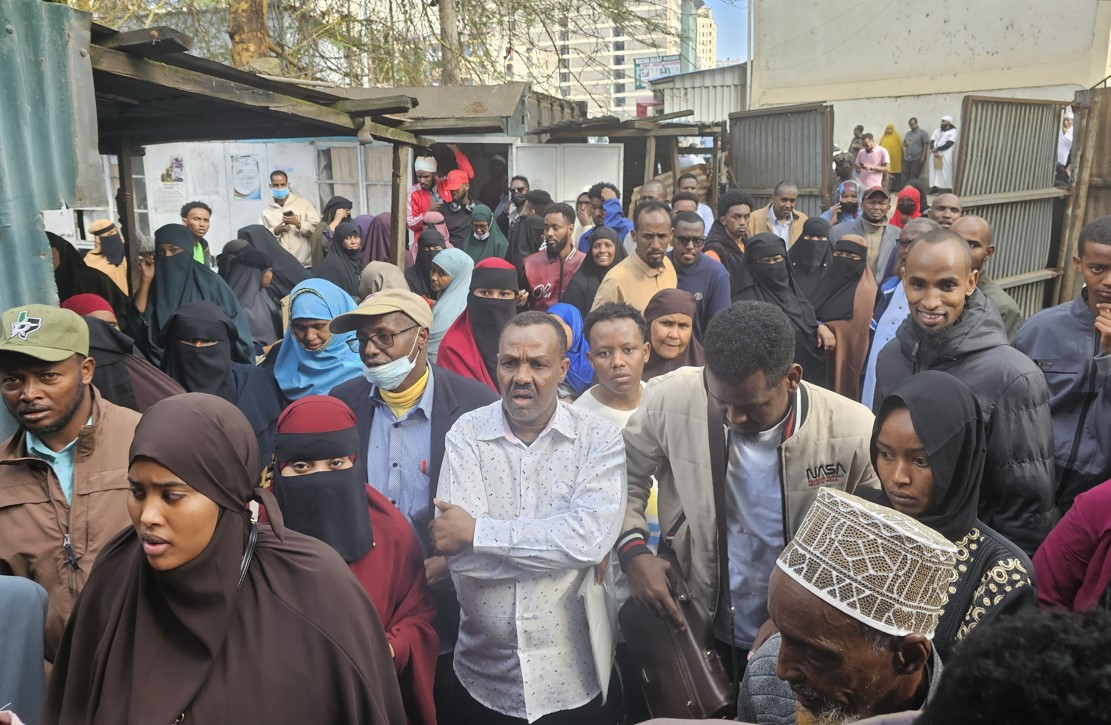 Vetting exercise for double-registered persons at the Chief's office in Eastleigh on February 29, 2024. (Photo: Abdirahman Khalif/EV)
Vetting exercise for double-registered persons at the Chief's office in Eastleigh on February 29, 2024. (Photo: Abdirahman Khalif/EV)
Under the vetting process, an applicant had to appear before registration and security agents including the Directorate of Criminal Investigations, the Intelligence Service, the local chief, the Deputy County Commissioner, the registrar, and two appointed community elders to be grilled before they are issued with the National Identity card, the main proof of nationality for Kenyans.
Affected persons
The process affected persons from Somali, Arab, Nubian, Asian, Duruma, Digo, and other ethnic backgrounds who were systematically vetted before they were granted the IDs.
Today, the Chief uses his networks and an applicant's Kenya Certificate of Primary Education (KCPE) and primary leaving school certificates, birth certificates, and National IDs of both parents or in their absence their death certificates to establish whether the applicants are residents of the location.
These, according to officials provide enough proof of an applicant's residence after which the chief confirms the same in writing and by signing the form that the applicant uses to get to the next stage of registration.
"The process has been smooth running so far, there have not been many delays like the past especially here in Eastleigh North, South, and Airbase," another official added.
The new applicants are getting the new Maisha card, a good number of which lie uncollected at the NRB offices.
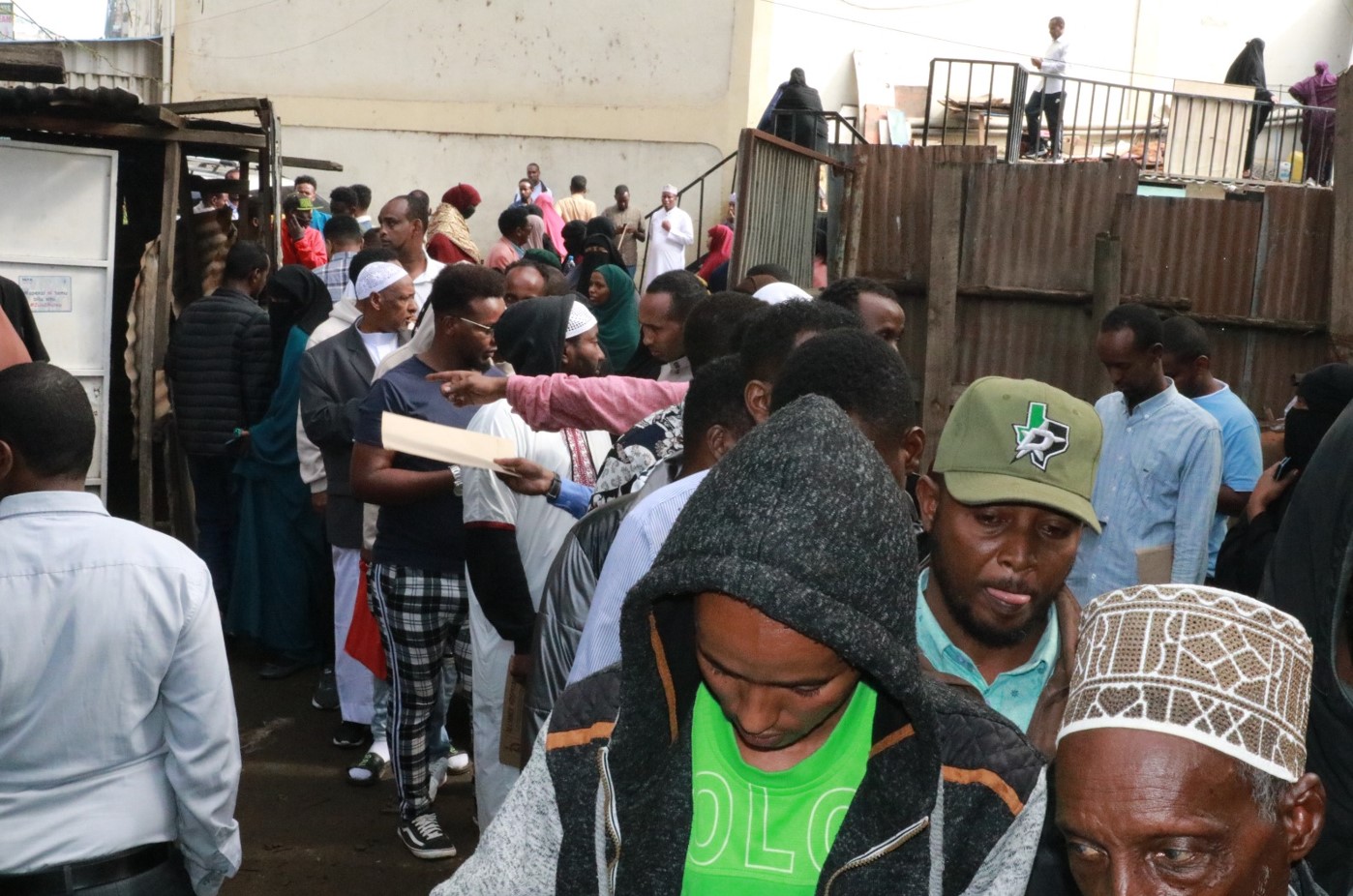 Residents of Eastleigh, Nairobi, are pictured at the chief's office on February 29, 2024, seeking deregistration from the United Nations High Commissioner for Refugees (UNHCR) database. (Photo: Amin Abdullahi/EV)
Residents of Eastleigh, Nairobi, are pictured at the chief's office on February 29, 2024, seeking deregistration from the United Nations High Commissioner for Refugees (UNHCR) database. (Photo: Amin Abdullahi/EV)
The government has launched a countrywide awareness campaign on proposed regulations to govern the issuance of new national ID cards and birth and death certificates.
As of August 22, a total of 476,167 printed National ID cards were lying uncollected in all the National Registration Bureau (NRB) offices and Huduma Centres across the country.
A run down by the Department of Immigration showed that Nairobi County has the highest number of uncollected ID cards (55,327) followed by Kiambu (37,708) and Nakuru (28,581).
Other counties with a high number of uncollected National ID cards are Kisumu (18,529), Mombasa (17,140), Kisii (15,842), Murang'a (13,627), Uasin Gishu (13,155), Kajiado (12,533) and Bungoma (12,053).
"We urge applicants who are yet to collect their cards to visit the station where they submitted their application as soon as possible," Immigration and Citizen Services Permanent Secretary Julius Korir said at the time.
This week, the department will kick off a public participation exercise that will be coordinated by Regional and country commissioners on the draft regulations for the Registration of Persons Amendment Rules 2024 and the Birth and Death Registration Amendment Rules 2024.
The regulations are critical in anchoring the rollout of the Maisha card and its related features including the virtual ID that the government has been piloting since November last year.
Top Stories Today
